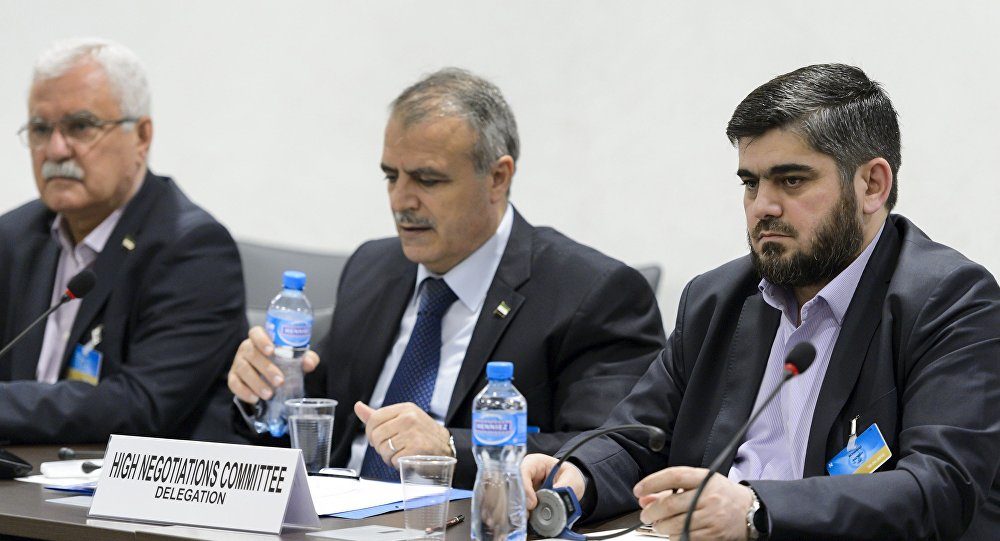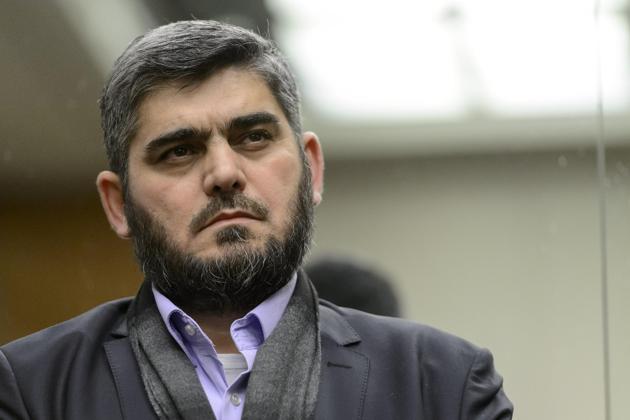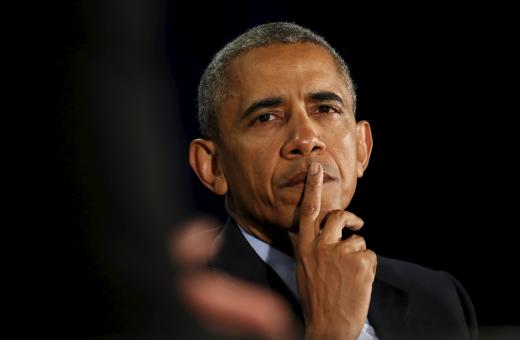
Inside sources at the Syrian opposition’s High Negotiations Committee (HNC) said that it has started talks to rearrange its internal affairs, especially in terms of appointing a new head of the negotiating delegation and expanding its circle of representatives, to facilitate making an appropriate decision regarding this matter at its next meeting that is supposed to take place in approximately ten days’ time.
After the Syrian opposition’s chief negotiator Mohammed Alloush submitted his resignation, there is now a tendency to abolish the position that he previously held and appoint a leader of the delegation. It is almost settled that the leader will not be a military one and it is not necessary for the individual to be a member of the HNC.
The sources also revealed that a decision has been made to appoint a substitute for the head of the negotiating delegation Asaad Al-Zoubi which will prompt him to hand in his resignation. The sources noted that while his performance is commendable, he has been criticized for his undiplomatic and “military personality” that often reflects negatively on the body’s relations with international authorities.
After the sources highlighted the existence of a trend to expand the circle of representatives in the negotiating team to include new parties from “the Cairo Group” and “the Moscow Group”, they said that names tipped to take over the delegation’s leadership alternate between Basma Qadamani and Jihad Al-Maqdisi among others.
Sources stressed that the selection is subject to several considerations, especially the distribution of the four components of the committee.
Chief opposition negotiator resigns
Mohammed Alloush, The chief negotiator of Syria’s main opposition group and the spokesperson of Jaysh al-Islam rebel group, has resigned two days ago over what he called the failure of peace talks.
Mr. Mohammed Alloush condemned the international community’s “inability to enforce resolutions, in particular regarding humanitarian issues, [such as] the lifting of sieges, access to aid, the release of prisoners and adherence to the ceasefire”.
Mohammed Alloush, who had also come under pressure from his own military supporters to resign, said in a statement on Facebook on Sunday: “The three rounds of talks were unsuccessful because of the stubbornness of the regime and its continued bombardments and aggression towards the Syrian people.”
Before his resignation, Alloush had called on Russia and the US to do more to enforce a ceasefire. He had also called for more action on the release of political prisoners and their treatment while incarcerated.
Mohammed Alloush’s importance to the HNC stemmed from his closer links to the Syrian rebel fighters. Some members of the committee – an unwieldy group assembled in Riyadh – were regarded as exiles who have less direct contact to those fighting Assad’s forces. The danger for those trying to keep the peace process alive is that the HNC will lose legitimacy if it does not have sufficient links with rebel fighters. Syrian Opposition




